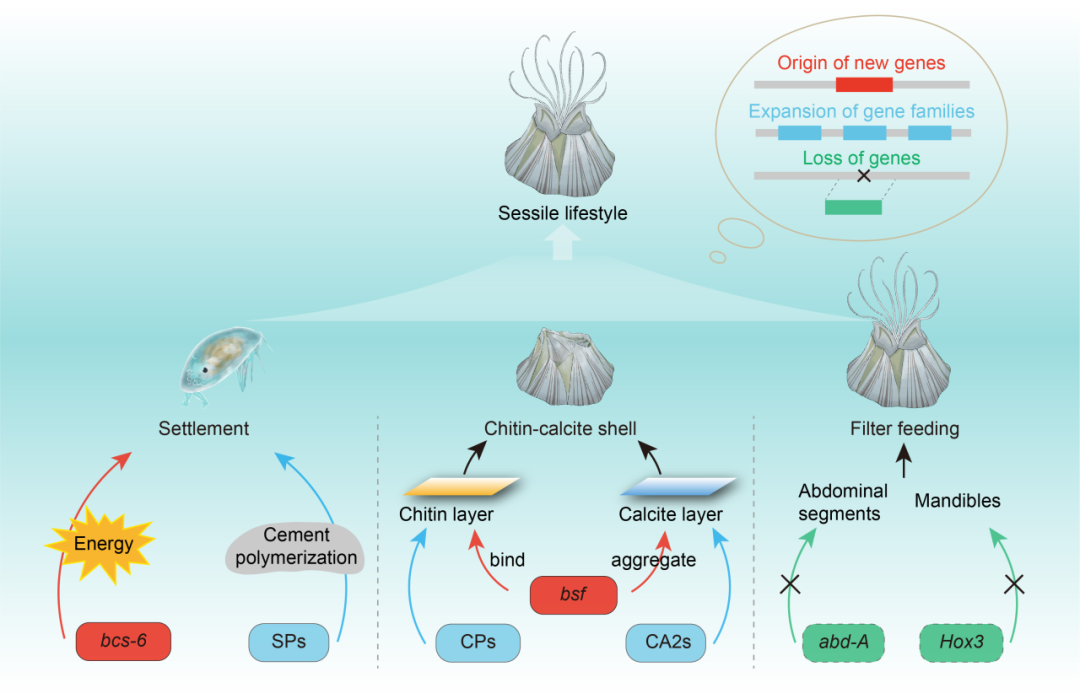Barnacles are the only sessile lineages among crustaceans, and their sessile life begins with the settlement of swimming larvae (cyprids) and the formation of protective shells. These processes are crucial for adaptation to a sessile lifestyle, but the underlying molecular mechanisms remain poorly understood. While investigating these mechanisms in the acorn barnacle, Amphibalanus amphitrite, we discovered a new gene, bcs-6, which is involved in the energy metabolism of cyprid settlement and originated from a transposon by acquiring the promoter and cis-regulatory element. Unlike mollusks, the barnacle shell comprises alternate layers of chitin and calcite and requires another new gene, bsf, which generates silk-like fibers that efficiently bind chitin and aggregate calcite in the aquatic environment. Our findings highlight the importance of exploring new genes in unique adaptative scenarios, and the results will provide important insights into gene origin and material development.

Zhaofang Han#, Zhixuan Wang#, Daniel Rittschof, Zekun Huang, Liying Chen, Huanhuan Hao, Shanshan Yao, Pei Su, Miaoqin Huang, Yuan-Ye Zhang*, Caihuan Ke*, Danqing Feng*. New genes helped acorn barnacles adapt to a sessile lifestyle. Nature Genetics, 2024
https://www.nature.com/articles/s41588-024-01733-7